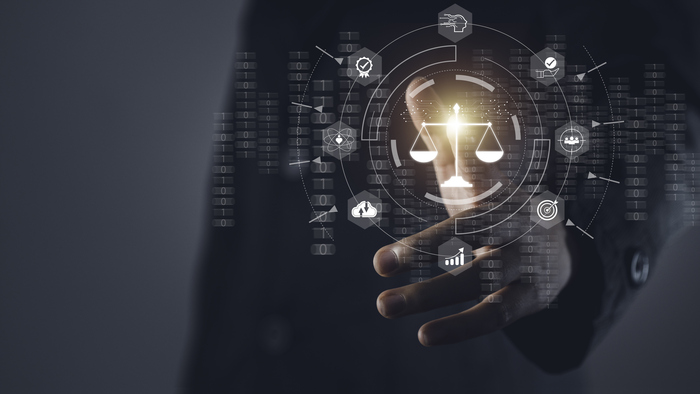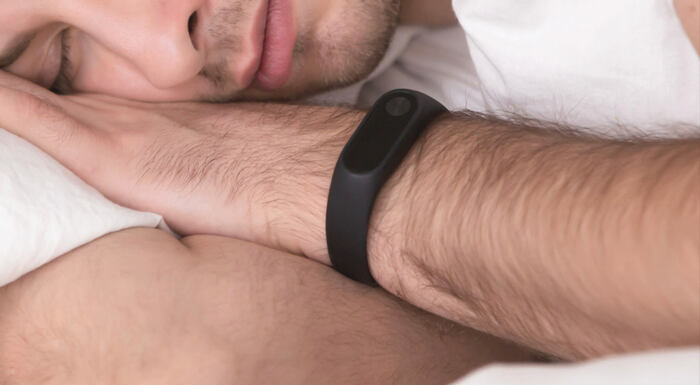the new year is still young, but has already shaken the medical world: Google is apparently superior to radiologists when it comes to detecting breast cancer. The diagnosis of mammograms is exhausting and errors can always occur. The Mountain View Group's artificial intelligence develops its own diagnostic strategies and constantly checks them.
Google tested the software on nearly 29,000 women who had breast cancer screening in the United States and the United Kingdom. The results were impressive, they were published in the renowned journal "Nature". Above all, the "false positive results", ie false alarms, were far lower than in conventional examinations by specialists.
Universal Images Group via Getty Images
Software changes the way doctors work
As early as 2009, SPIEGEL described the problem of the error rate in breast cancer screening tests and the associated suffering. If 2,000 women regularly took part in breast cancer screening for ten years, it was said that one woman less died of breast cancer in the end. What sounds good, however, has a problem: At the same time, 10 out of the 2,000 women received breast cancer treatment even though they had no breast cancer at all. In 200 of the 2,000 women there is at least one false alarm in ten years.
Doctor of the future
Artificial intelligence now works with the "receiver operating characteristic", ie the probability of an error, 11.5 percentage points better than humans. This can increase the number of breast cancer diseases identified in time and the number of unnecessary biopsies of suspicious tissue.
What does that mean for the doctors? In the future, radiologists will have to focus more and more on interventional radiology - image-controlled interventions - if software does its job better than it does itself. In the future, sophisticated algorithms will be more and more superior in shape recognition, even if it would still take a while to get rid of the classic radiologist , The specialist will always have a problem if the diagnosis of the software is more accurate than that of the human practitioner.
This should also be the case in other medical specialties and lead to the question of whether the doctor of the future will still be a doctor. But at least one problem remains, according to a "Nature" editorial for the current breast cancer publication: Can software explain why it finds a picture suspicious? Probably not at the moment. If no tumor was found in the subsequent biopsy, this must be taught to artificial intelligence so that this knowledge can be used for future diagnoses of the software. If the system does not learn to do so, it could quickly lose its accuracy and people would ultimately work better again.
Do you like Netzwelt topics? Then subscribe to posts like this one. The newsletter start menu is free of charge and arrives in your mailbox every Monday afternoon.
Strange digital world: traffic jam in the taxi app
New Year's Eve was the night of the night for taxi drivers. At FreeNow, better known under the old name MyTaxi, the business was apparently booming. In Hamburg, it was hardly possible to pre-order at 7 p.m. - instead, the app suggested certain times, some of which deviated quite far from the desired pick-up time. The driver did not come anyway. But worse is always possible: From two o'clock in the morning you had to search for an taxi for an hour on the app - no car was available.
Why should a driver rely on a system that night that demands a commission of seven percent of the fare? The business is on the street, many thought. By the way, you could just stop a taxi there. The driver had neither radio nor taxi apps on his smartphone. He had already brought in 300 euros that night, the man said.
App of the week: "Typewise Keyboard"
tested by Tobias Kirchner
icoaching
Who does not know it? Quickly type another message, send it straight away - and the message is full of errors. The "Typewise Keyboard" app offers a solution for all high-speed recorders. At first glance, the letters in particular are larger and somewhat more clearly arranged. Operation is also more intuitive. Swipe gestures switch between upper and lower case or letters are deleted. There are also various optical adjustment options, for example a dark mode. The app does not require authorization, except one for vibration. In the free version, some useful skills can be used - if you want everything, you pay just under ten euros for an annual subscription.
Free version, with in-app purchases, from icoaching: iOS, Android
Foreign links: Three tips from other media
- "Software error paralyzes subways in Hamburg" (German, one minute's reading)
They have been in operation since 2012, but the turn of the year to 2020 has caused problems: Some trains in the modern DT-5 subway series were brought to a standstill by a software error when turning at the terminus.
- "The Age of AI" (English, 35 minutes)
The first episode of the YouTube Originals series on artificial intelligence and its possibilities deals with the question of how lively AI is and where the limits of technology lie - and should be.
- "Uh-oh: Advanced driver assistance systems are making us all bad drivers" (English, three minutes of reading)
Drivers rely too much on assistance systems and are easily distracted - "ZDnet" shows the dangers of partial automation of driving.
I wish you a good start into the new year,
Yours Martin U. Müller
SPIEGEL ACADEMY
University course with certificate - Cyber Security
Secure the Internet of Things from cyberattacks! Find out more here.







